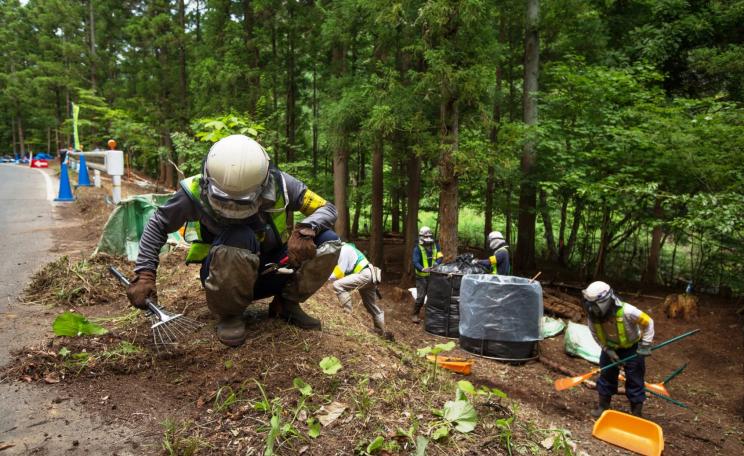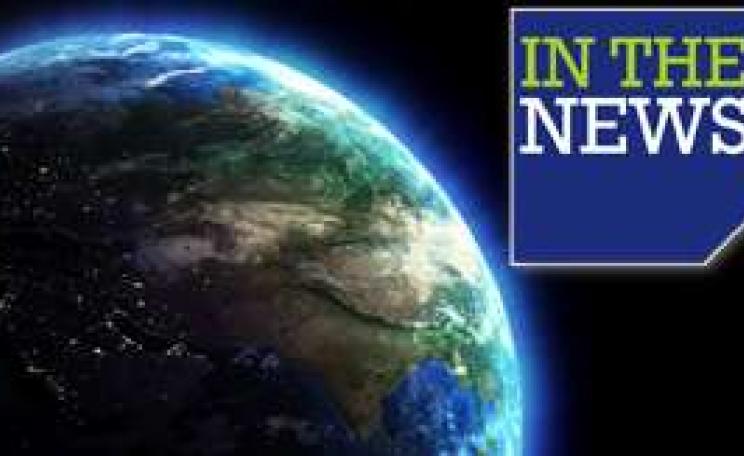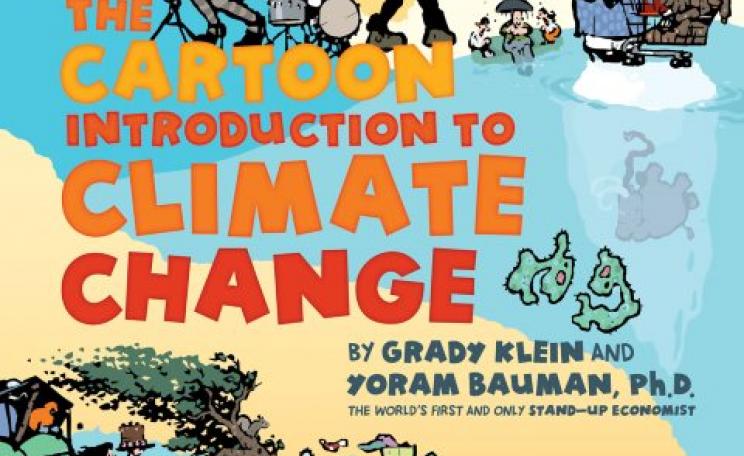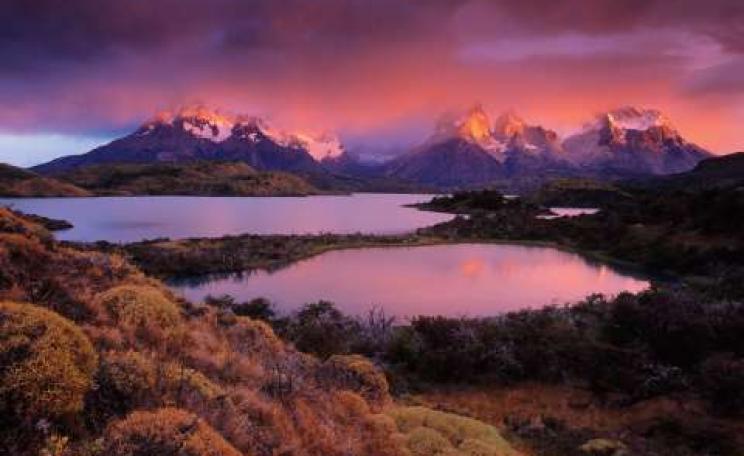We'll pay the consequences - maybe not us, but our children or grandchildren.
Which is the most pervasive drug in France nowadays? Cocaine? Heroin? Crystal Meth? Using a mischievous but not altogether unwarranted analogy, this French TV film suggests that it's nuclear power. Why? Because that source generates 84% of the nation's electricity, more than any other country - so France is literally hooked on nuclear power plants.
This then is a film which, focussing mainly on Normandy's La Hague plant, explores the advantages, challenges, pitfalls, controversies, and perceived future perils surrounding our Gallic neighbour's reliance on nuclear power. Much of the debate which has swirled around it parallels that in the UK over several decades.
Hence in predicting who will say what, our expectations are largely met. La Hague's Mayor, for example, comments that "most people in the region aren't worried and would welcome another EPR" (European pressurised reactor). Referring to protestors, he provides what must constitute the ultimate insult from a provincial Frenchman: "some of the troublemakers maybe even from Paris" (my italics).
Nearby, the grandmother in a static caravan who has holidayed regularly at La Hague for 18 years introduces the first note of discord when she admits that some family members who work at the plant "have small health problems". However, what's actually more revealing is her anxious aside - "I don't know if you should put that in".
Of course, the director does include it, as it's so indicative of people's reluctance to make known their adverse opinions about the local nuclear plant, for fear of being criticised themselves. As a local school teacher subsequently points out, talking about nuclear power is considered taboo.
Interestingly, this attitude emerges implicitly in a cartographic context, Digulleville's Mayor giving an almost embarrassingly incoherent and evasive answer when asked to explain the notable omission from the regional map of a huge nuclear plant.
Mounted prominently on a municipal information board in the village centre, we may infer that the map is intended primarily for visitors - so it would be a shame to spoil their good impressions of Digulleville.
Naturally, speaking of the industry in positive terms is not taboo for La Hague's PR man, who smoothly reassures an audience that "through vitrification we guarantee we've frozen the radioactivity for 100,000 years".
So that's alright then. But hold on, what's this being said by a representative of ACRO (Agency for the Control of Radioactivity in West)? He's explaining to a local class of school-children that radioactivity bio-accumulated by flatfish, crabs, and mussels (ie sea-bed feeders) shows higher readings the closer they're sampled to the Areva discharge pipe's mouth, 4km out in Ecalgrain Bay.
A Greenpeace campaigner comments that although the nuclear waste is discharged from the pipeline quite legally, if the equivalent amount was stored in barrels and subsequently dumped at sea, such action would contravene the 1972 London Convention.
We'll pay the consequences - maybe not us, but our children or grandchildren.
He adds the ominous statistic that since Sellafield and La Hague reprocessing plants have been operating, they have been jointly responsible for more than doubling the amount of radioactive iodine 129 over the entire planet.
Back in the classroom pupils are presented with their Ecalgrain Bay field study results. These indicate that the samples they collected - of sand, limpets, and brown seaweed (fucus serratus) - are contaminated with up to 44 becquerels of iodine 129.
This is to be expected, as none of this substance is re-processed at La Hague - in fact 100% is discharged. Such evidence prompts one boy to ask "why do nuclear plants still exist if they're dangerous?" And for a classroom the answer is not unreasonable; "It's a question of choice - some countries think they can control them, and they're better than using coal or oil."
This question of 'national choice' is touched on with some unintentional irony by our French Greenpeace campaigner, who praises Germany's stance. Significantly, whilst German nuclear waste was sent to La Hague for re-processing, Germany continued using nuclear energy, but decided to phase it out as soon as it was suggested some be returned - "the nuclear waste problem pushed Germany out of nuclear energy".
That the nuclear waste issue will continue to haunt the environs of La Hague is emphasised by a public admission of an industry insider. His conscience already troubled by the "bad job" of containment he undertook 'on his watch', a former operations manager of La Hague's nuclear waste facility says, with a mixture of contriteness and regret: "we'll pay the consequences - maybe not us, but our children or grandchildren".
So, all in all, we have a fairly rounded film, with a lack of slick production values which is more than compensated for by its feeling of raw immediacy. This is achieved not via any portentous over-arching commentary, but mostly through a collection of unscripted straight-to-camera monologues by those people either directly affected by nuclear power, or with particular interests - economic, technological, educational, health, environmental, etc - perhaps what we may fashionably term 'stakeholders'.
And so viewers are left to draw their own conclusions, or perhaps select from the film those elements which tend to support their own prejudices - reasonable or otherwise.
Welcome to Nuclear Land (2009) is a co-production of The Factory and Lapsus. Made with the participation of France 2 (TV) and the support of Région Basse-Normandie. Produced by Frank Eskenazi and directed by Esther Hoffenberg. Distributed by Doc&Film.
Further information about the film is available at http://www.estherhoffenberg.fr/film003.html
Edgar Vaid is a freelance book and film reviewer. For more than 30 years he worked for Natural England, becoming involved in policies including traditional field boundaries, organic farming, and public rights of way. However, he became witness to a series of increasingly over-sophisticated corporate programmes, and endured some mind-numbing team meetings. Partly as a more productive and satisfying diversion, he took to writing reviews (rather than drink). Edgar lives in the Forest of Dean, and may be contacted at orizabalodge@yahoo.co.uk.







